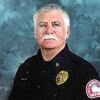“Chief charged with embezzlement.”
“Paramedic takes her life.”
“Firefighters face discipline.”
It doesn’t take a headline like those or a medical degree to realize the job of protecting lives and property takes a toll on firefighters. Cumulative stress, traumatic events and the pressure to live up to mythical standards set by us and the public results in firefighters making horrific personal choices.
These poor decisions can lead to physical and mental illness, incarceration and suicide. As a consequence, we have all begun to realize the importance of addressing the issues leading to such outcomes.
Leadership classes, health seminars, exercise programs and peer counseling are all listed in page after page of self-help programs and regional conferences. But to what end?
While many of these challenges can be attributed to the nature of the job, recent decisions by a few firefighters to lie, cheat and steal have lowered the bar to the bottom levels of human behavior, bereft of the honor we believe inherent to the fire service.
Opaque and relentless, real life is creeping into our profession and exposing changes in our personnel and their service values. The difficulty is that we are addressing these issues after the fact, reacting to consequences and headlines, rather than preventing the very conditions that create these negative outcomes.
At the most fundamental level, we in the fire service are not hiring caregivers but are prideful of the thousands of over-achievers who assemble in gyms and cafeterias applying for the scant few jobs for which we are the gatekeepers.
Big heart, strong back
After a long, arduous and heroic indoctrination, these are the newly hired firefighters who eventually become disgruntled by the lack of recognizable prestige and reward.
The seeming exclusivity of our profession has allowed entitlement to replace gratitude in our recruits. As a result, compensation is replacing commitment throughout our ranks. The fire service is suffering this deterioration of purpose, emphasizing competency over compassion in its selection process.
Entitlement is the product of high expectations unrealized. Firefighters are constantly reaching for goals in a culture anchored in the past, ill-equipped for the present and inpatient for the future. Firefighters are expected to be at their best while being commanded to constantly better themselves.
From this perspective, new firefighters see survival as career advancement and any movement is mistaken for growth, if not ambition. The lesson lost is that without measurable accountability there is no real progress, for the firefighter or their department.
Generations ago the hiring criteria was a big heart and a strong back. Today, we rightfully acknowledge this is not enough. With the public’s expectations and its accompanying economic criteria on the rise, the result is civil compensation in the form of liability protection and insurance savings. Welcome to the world of the firefighting professional.
In today’s society, technology demands education, skills require training and progress depends on leadership. While we have focused on and promoted the first two, the fundamentals of the latter have deteriorated through underachievement and overanalysis.
Leaders are not made or born — leaders are molded. There is fundamental anthropological clay without which no human vessel can be created. Moral standards, ethical beliefs and altruistic behavior are the minerals of this personal soil. They are the gauges measuring a big heart and strong back.
Leadership’s role
Unfortunately, these are not necessarily needed in the world of higher education and task dexterity, the newly demanded chapters that are redefining our fire service legacy. Subsequently, leadership diminishes the role of good behavior in its requirement to uphold excellence.
Impossible to quantify, leadership is interactive and ongoing. It is as difficult to define as it is to implement. Firefighters can study distinct markers that illustrate leadership, but experiencing the decisions of a good leader is the only path to success for an aspiring officer.
While you must study for promotion, you can only learn by example. Unfortunately, under today’s high-pressure workload, mentorship is as rare as leadership as firefighters establish their independence while officers protect theirs.
The chaos we are charged to control, the lives we are expected to save and all that is forever analyzed as lost or destroyed, add up to an atmosphere of critical stress, independent of any level of training and education we aspire to.
For the fire service, this is a mutable environment unable to be quantified or treated until it is exposed as inappropriate, criminal or dangerous in the lives of firefighters. The resulting social consequences, magnified by media and promoted by public opinion, are being seen throughout our ranks.
Having to deal with all of life’s tragedies and without the most fundamental of human values to protect us, we are becoming our own patient.



